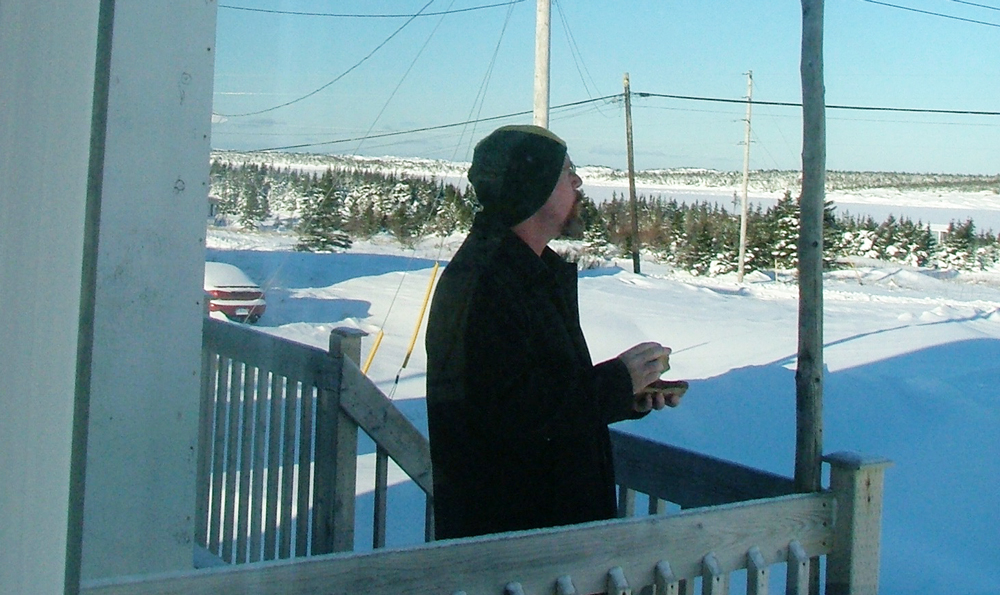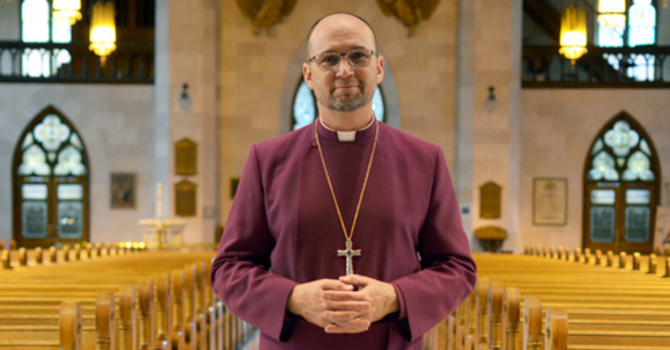


DIOCESE OF HURON
The Diocese of Huron was founded in 1857, and is a diocese of the Ecclesiastical Province of Ontario of the Anglican Church of Canada.
THE LITURGICAL YEAR
The liturgical year, also called the church year, Christian year or kalendar, consists of the cycle of liturgical seasons in Christian churches that determines when feast days, including celebrations of saints, are to be observed, and which portions of Scripture are to be read either in an annual cycle or in a cycle of several years. The liturgical cycle divides the year into a series of seasons, each with their own mood, theological emphases, and modes of prayer, which can be signified by different ways of decorating churches, colours of paraments and vestments for clergy, scriptural readings, themes for preaching and even different traditions and practices often observed personally or in the home. In churches that follow the liturgical year, the scripture passages for each Sunday (and even each day of the year in some traditions) are specified in a lectionary.
The season of Advent marks the start of the Christian year, and is a season of expectation and preparation as the Church looks forward to celebrating the birth of Christ. The word "Advent" comes from the Latin and means "coming." Christ Jesus is coming, and Advent is a time to prepare for His arrival. The Church services, ancient traditions and preparations through the season of Advent is a powerful reminder of the real meaning of the season.
Christmas, the celebration of Christ's coming among us, the incarnation, is one of the two poles of the Christian year, along with the narrative of his death and resurrection. The season of Christmas begins on December 25th each year and last for twelve days. One of the challenges for the Church is to continue to celebrate the season of Christmas after the secular world has turned its thoughts elsewhere. As Christians we have an opportunity to celebrate the real meaning of Christmas.
The word 'Epiphany' comes from Greek and means "to show", referring to Jesus being revealed or manifest to the world. Epiphany explores other ways in which Christ reveals himself to be the Son of God: the celebration of the baptism of Christ by John, when the voice from heaven declared Jesus to be God's beloved Son; and Jesus first miracle, when he turned water into wine at a wedding in Cana. The season of Epiphany runs until Ash Wednesday, the start of Lent. The last Sunday of Epiphany is celebrated as Transfiguration Sunday.
The season of Lent is traditionally marked by self-examination, fasting and preparation for Easter. It is a time when Christians reflect on the biblical account of Jesus in the wilderness. Ash Wednesday marks the start of Lent, the most solemn time of the Christian Year. Ashes are an ancient sign of penitence: from the Middle Ages it became the custom to begin Lent by marking Christians with the sign of the cross in ash on their foreheads. As Holy Week approaches, the atmosphere of the season darkens. Bible readings begin to anticipate the story of Christ's suffering and death. This is the beginning of a journey of the imagination which takes us to the Upper Room for the Last Supper on Maundy Thursday, through Jesus' betrayal, trial and crucifixion on Good Friday. Easter Eve, or Holy Saturday, is a day of desolation. Through the Easter Vigil, the Church gathers to call to mind the mighty works of God through reading of scripture, in preparation for the proclamation of the resurrection, which marks the beginning of the celebration of Easter.
Easter is the single most important festival in the Christian calendar. Easter joyfully celebrates the resurrection of Jesus, three days after he was executed. During Easter we travel to the very core of Christianity. Easter Sunday services remember the resurrection of Christ with special Easter services, which includes special prayers, litanies, psalms and hymns. Easter is a real experience of new life for Christians, a passing from darkness to light which offers hope to all the faithful. The season of Easter lasts for fifty days, from Easter Sunday to Pentecost Sunday.
Pentecost is the festival when Christians commemorate the gifts of the Holy Spirit, when it descended upon the Apostles and other followers fifty days after Jesus Ascension to heaven. Pentecost is regarded as the birth of the Christian church by the power of the Holy Spirit, and the start of the church's mission to the world. Pentecost is celebrated on the Sunday exactly fifty days after Easter Sunday. The season after Pentecost, according to the calendar of the church year, begins on the Monday following Pentecost, and continues through most of the summer and autumn. It may include as many as twenty-eight Sundays, depending on the date of Easter. This includes Trinity Sunday which is the First Sunday after Pentecost.
-
PARTNERSHIP ADMINISTRATION
-
PARTNERSHIP LEADERSHIP
Partnership Chair
Jane Cartier
Partnership Wardens
Linda DeBurger
Karen StonerPartnership Treasurer
Tracy Wygiera
-
PARTNERSHIP PRIEST

Harold Harvey
Welcome. I am a progressive Anglican priest currently serving in the Diocese of Huron; so what does being a progressive priest mean you might ask, well, in short it means I believe in science, not magic. (…but I do believe in mystery…)
Not sure why some Christians have a problem with the prefix progressive, as one of its adjective antonyms is regressive, (backward or primitive). A Google search of the word regressive notes the following: “Use the adjective regressive to describe something that moves backward instead of forward, like a society that grants women fewer and fewer rights each year. To understand the word regressive, it's helpful to know that its antonym, or opposite, is progressive.”
Progressive Christianity takes on a postmodern theological approach, which is embedded in the Enlightenment's thinking and Christian liberalism. Characterized by a willingness to question tradition, it emphasizes the acceptance of human diversity, the need for social justice, the care of marginalized persons, and the environmental stewardship of the planet.
I began my Christian walk in the United Church of Canada, but eventually left the church for a number of years. I finally returned after a long and introspective journey, attending the Holy Week services at a local Anglican church. That week proved to be the catalyst that helped affirm my decision to offer my life in service to others.
I was called to ordination (as was my wife Marlene) in the Diocese of Western Newfoundland, where I served in two parishes as "Priest-in-Charge." I retired from the Anglican Church of Canada in 2018 and moved to my current location. After a few years helping the previous incumbent with services in the Parish of the Transfiguration, I was appointed to my current role as “Priest-in-Charge (part-time)” for the Rondeau Bay Transfiguration Partnership.
Life lessons offered through my varied interactions with others has taught me much. Most of all, it has taught me to be open and to listen more than I speak; in this way I am better able to empathize with others and to discern my part in this great "mystery" of faith and life. -
DIOCESE OF HURON

The Diocese of Huron
The Diocese of Huron is a diocese of the Ecclesiastical Province of Ontario of the Anglican Church of Canada. The diocese comprises just over 31,000 square kilometres in southwestern Ontario, sandwiched between Lake Huron and Lake Erie. Its See city is London, and its parish rolls of 50,000 are served by 177 congregations. On October 26, 2019 at an Electoral Synod held at St. Paul's Cathedral in London, Ontario, The Reverend Canon Dr. Todd Townshend of the Diocese of Huron was elected to become our Diocesan Bishop. He was consecrated, installed, and seated as the 14th Bishop of Huron on January 25, 2020.
DESIGN BY
H2 DESIGN PIXEL
https://rondeaubaytransfiguration.org/resources/blogpage/
https://rondeaubaytransfiguration.org/resources/lectionary/
https://rondeaubaytransfiguration.org/
https://rondeaubaytransfiguration.org/rites/funerals/
https://rondeaubaytransfiguration.org/rites/baptism/
https://rondeaubaytransfiguration.org/rites/weddings/
https://rondeaubaytransfiguration.org/churches/stjohns/
https://rondeaubaytransfiguration.org/churches/stmatthews/
https://rondeaubaytransfiguration.org/churches/christchurch/
https://rondeaubaytransfiguration.org/churches/advent/
https://rondeaubaytransfiguration.org/churches/trinity/
https://rondeaubaytransfiguration.org/churches/stpauls/
https://rondeaubaytransfiguration.org/#top
https://rondeaubaytransfiguration.org/#section1
https://www.rondeaubaytransfiguration.org/Statistics/
https://www.rondeaubaytransfiguration.org/resources/blogpage/
https://www.rondeaubaytransfiguration.org/resources/lectionary/
https://www.rondeaubaytransfiguration.org/
https://www.rondeaubaytransfiguration.org/rites/funerals/
https://www.rondeaubaytransfiguration.org/rites/baptism/
https://www.rondeaubaytransfiguration.org/rites/weddings/
https://www.rondeaubaytransfiguration.org/churches/stjohns/
https://www.rondeaubaytransfiguration.org/churches/stmatthews/
https://www.rondeaubaytransfiguration.org/churches/christchurch/
https://www.rondeaubaytransfiguration.org/churches/advent/
https://www.rondeaubaytransfiguration.org/churches/trinity/
https://www.rondeaubaytransfiguration.org/churches/stpauls/
https://www.rondeaubaytransfiguration.org/#top
https://www.rondeaubaytransfiguration.org/#section1